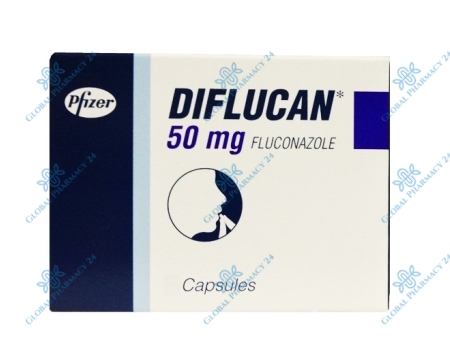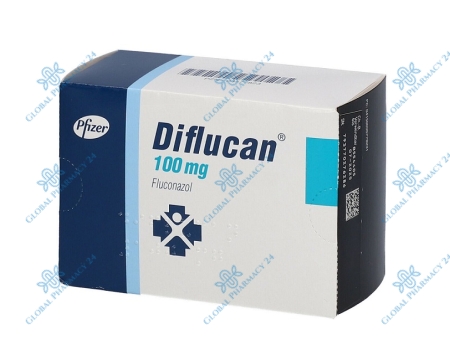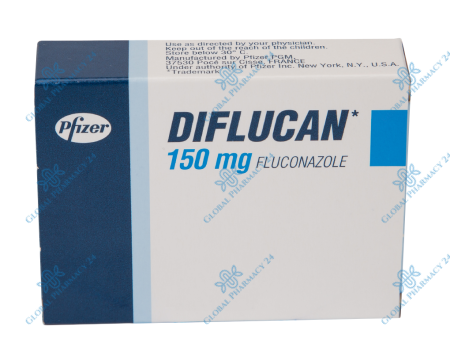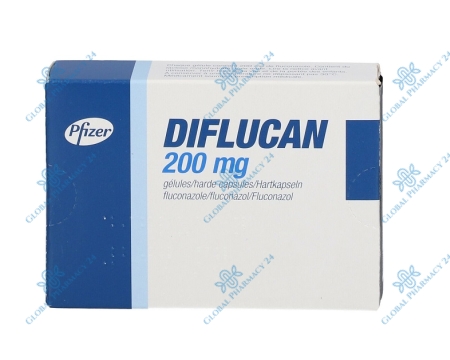| Characteristic | Details |
|---|---|
| Active Ingredient | Fluconazole |
| Dosage Forms | Capsules, Oral Suspension, Injection |
| Common Dosage | 150mg for vaginal infections, varies for other infections |
| Duration of Action | 24 to 72 hours depending on infection |
| Storage | Store below 30°C (86°F) |
An In-depth Overview of Diflucan
Diflucan, known generically as fluconazole, is a potent antifungal medication widely used for the treatment of a variety of fungal infections, including yeast infections of the vagina, mouth, throat, esophagus, and other organs. Fluconazole is also employed in the prevention of fungal infections in people with weakened immune systems, such as those undergoing chemotherapy or AIDS patients. Its broad-spectrum antifungal activity makes it a critical component in the management of systemic and superficial fungal infections.
The medication's effectiveness stems from its ability to inhibit the growth of a wide range of fungi by disrupting the production of a vital component of fungal cell membranes. This mechanism of action ensures the reduction of fungal proliferation while minimizing the impact on human cells, making Diflucan a preferred choice for patients seeking a balance between efficacy and safety.
Unpacking Diflucan's Composition and Characteristics
Diflucan's active ingredient, fluconazole, is celebrated for its excellent absorption rate and its ability to penetrate well into body fluids and tissues, achieving effective concentrations at the site of infection. It is available in various forms, including capsules, oral suspension, and injection, offering flexibility in administration based on patient needs and the severity of the infection.
Active Ingredient - Fluconazole
Fluconazole operates by inhibiting a fungal enzyme necessary for the synthesis of ergosterol, an essential component of the fungal cell membrane. Without ergosterol, the cell membrane becomes permeable and unable to function properly, leading to fungal cell death.
Packaging and Storage Information
Diflucan should be stored in a cool, dry place away from direct sunlight to maintain its efficacy. The packaging is designed to protect the medication from moisture and light, ensuring its stability and longevity.
Detailed Understanding of Fluconazole
As a cornerstone of antifungal therapy, fluconazole's ability to target a wide array of fungi, coupled with its favorable pharmacokinetic profile, allows for its use in both acute and chronic infections. Its low incidence of side effects and interaction with other medications further underscores its role in antifungal pharmacotherapy.
Antifungal Effects
Fluconazole's broad-spectrum antifungal effect is effective against Candida species, Cryptococcus neoformans, and other significant pathogens, making it a versatile agent in fungal infection management.
Mechanism of Action
Its action mechanism, targeting the fungal cell membrane ergosterol synthesis, is both specific and potent, leading to rapid resolution of infection symptoms.
Metabolism and Elimination
Fluconazole is predominantly excreted in the urine, with a significant portion of the dose administered recovered in an unchanged form. This characteristic makes it an ideal candidate for treatment in patients with renal impairment, albeit with adjusted dosing.
How to Use Diflucan Correctly
Correct usage of Diflucan is crucial for achieving the best outcomes in fungal infection treatment. It is administered orally or intravenously, depending on the specific medical condition and the severity of the infection. The medication's versatility and efficacy make it a staple in antifungal therapy, but adherence to prescribed dosages and administration guidelines is essential for safety and effectiveness.
Patients are advised to follow their healthcare provider's instructions closely when taking Diflucan. The dosage varies significantly based on the type and severity of the infection, as well as patient-specific factors such as age and kidney function. Regular monitoring and adjustment of dosage may be necessary to optimize treatment outcomes and minimize potential side effects.
Proper Dosage and Administration
Dosage of Diflucan can range widely depending on the infection being treated. For vaginal yeast infections, a single oral dose of 150 mg is typically effective, while other types of infections may require a different dosage regimen.
Important Precautions Related to Dosage and Administration
Particular attention should be given to patients with renal or liver impairments. In such cases, dose adjustments are necessary to avoid accumulation of the drug and potential toxicity.
Special Considerations for Patients with Kidney and Liver Impairments
Diflucan's dosing in patients with kidney and liver impairment requires careful consideration. Adjustments to the standard dosing schedule may be necessary to mitigate the risk of adverse effects in this patient population.
Safety Guidelines When Using Diflucan
While Diflucan is generally safe and well-tolerated, awareness and adherence to safety guidelines are imperative to minimize the risk of adverse effects. Patients should be thoroughly screened for potential contraindications and monitored for side effects throughout the course of treatment. This proactive approach ensures that Diflucan remains a safe and effective option for the treatment of fungal infections.
Understanding the potential for drug interactions and side effects is critical for patients and healthcare providers alike. By closely following prescribing information and patient-specific considerations, the risk of adverse reactions can be significantly reduced, making Diflucan a reliable choice in antifungal therapy.
Significant Side Effects
Although rare, significant side effects such as hepatotoxicity, QT prolongation, and serious dermatological reactions can occur. These require immediate medical attention and may necessitate discontinuation of the medication.
Other Possible Side Effects
Other less severe side effects may include stomach discomfort, diarrhea, and changes in taste. These are generally transient and do not usually require cessation of therapy.
Interactions with Other Drugs
Diflucan can interact with a wide range of medications, potentially altering their effects or increasing the risk of adverse reactions. It is important for patients to inform their healthcare provider of all medications they are taking, including over-the-counter drugs and supplements.
Prohibited Drug Combinations
Certain drugs should not be taken with Diflucan due to the risk of serious interactions. These include cisapride, erythromycin, pimozide, and quinidine, among others.
Precautions with Concurrent Drug Use
When used with other medications that affect liver enzymes or are metabolized by the liver, careful monitoring and possible dose adjustments of Diflucan or the concomitant medication may be necessary.
Clinical Efficacy and Pharmacology of Diflucan
The clinical efficacy of Diflucan has been well-documented in numerous studies, demonstrating its effectiveness in treating and preventing a variety of fungal infections. Its pharmacological profile, characterized by good oral absorption, wide distribution throughout the body, and penetration into tissues and fluids, makes it an excellent choice for the treatment of systemic and superficial fungal infections.
Furthermore, Diflucan's ability to achieve high concentrations in key sites of infection, such as the cerebrospinal fluid in cases of cryptococcal meningitis, underscores its importance in the treatment of life-threatening fungal diseases. Its well-established safety profile, when used according to prescribing guidelines, further supports its role as a first-line agent in antifungal therapy.
An Overview of Clinical Trials on Efficacy and Safety
Clinical trials have consistently shown Diflucan to be highly effective in treating fungal infections, with a safety profile that is generally well-tolerated by patients. Its efficacy in both acute and maintenance therapy has been a significant factor in its widespread use in clinical practice.
Physicochemical Insights about Fluconazole
Fluconazole is distinguished by its chemical stability, solubility, and relatively low molecular weight, which contribute to its excellent pharmacokinetic properties, including absorption, distribution, metabolism, and elimination. These attributes ensure that fluconazole remains an effective and reliable option for the treatment of fungal infections.
FAQs Diflucan
What is Diflucan?
Diflucan is a medication used to treat fungal infections caused by yeast such as Candida, including vaginal yeast infections, oral thrush, and esophageal candidiasis.
How does Diflucan work?
Diflucan works by stopping the growth of the fungus causing the infection. It does this by interfering with the synthesis of the fungal cell membrane, ultimately leading to the death of the fungus.
What are the common side effects of Diflucan?
Common side effects of Diflucan may include nausea, vomiting, diarrhea, headache, dizziness, and abdominal pain. If any of these side effects persist or worsen, it's important to consult a healthcare professional.
Can I take Diflucan if I'm pregnant?
It's important to consult with a healthcare professional before taking Diflucan if you are pregnant or planning to become pregnant. In some cases, Diflucan may be prescribed during pregnancy, but the decision should be made based on the potential risks and benefits.
How should I take Diflucan?
Diflucan is typically taken orally, with or without food, as directed by your healthcare provider. It's important to follow the prescribed dosage and duration of treatment exactly as instructed.
Can I drink alcohol while taking Diflucan?
It's generally recommended to avoid alcohol while taking Diflucan, as alcohol can interact with the medication and increase the risk of certain side effects. It's best to consult with your healthcare provider for personalized advice.
How quickly does Diflucan work?
The onset of action of Diflucan can vary depending on the type and severity of the fungal infection being treated. In many cases, improvement may be noticed within a few days of starting treatment, but it's important to complete the full course of medication as prescribed.























